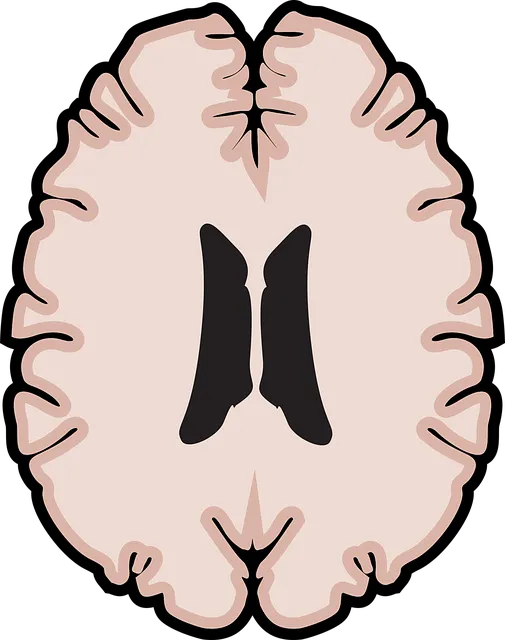Wheat Ridge Kaiser Permanente (WRKP) offers accessible mental health services through its Norcal program, utilizing various data sources like EHRs, surveys, and apps. They employ advanced statistical methods, natural language processing (NLP), and cultural sensitivity to analyze patient experiences, identify trends, and develop targeted interventions. WRKP's data-driven approach has transformed local mental healthcare in Norcal, improving outcomes through personalized coaching, community outreach, and stress reduction methods, setting a standard for similar initiatives.
Mental health data analysis is a powerful tool for understanding and improving patient care. This article explores the intricacies of analyzing and interpreting mental health data, from collection sources like the Wheat Ridge Kaiser Permanente mental health phone number, to advanced techniques that reveal insights. We delve into identifying patterns and trends using these datasets, highlighting success stories such as Norcal’s data-driven support systems. Understanding these processes is crucial for organizations like Wheat Ridge Kaiser Permanente in navigating mental health care effectively.
- Understanding Mental Health Data: Collection and Sources
- Data Analysis Techniques for Insights
- Interpreting Results: Identifying Patterns and Trends
- Wheat Ridge Kaiser Permanente's Role in Mental Health Data Management
- Norcal: A Case Study of Effective Data-Driven Support Systems
Understanding Mental Health Data: Collection and Sources

Understanding Mental Health Data involves recognizing that it’s a multifaceted landscape encompassing various sources and collection methods. One prominent source is Wheat Ridge Kaiser Permanente, which provides mental health services through phone-based programs tailored to diverse communities, including Norcal. This approach ensures accessibility, allowing individuals to seek support from the comfort of their homes.
Data collection in mental healthcare also includes electronic health records (EHRs), surveys, and self-care tracking apps. These tools offer valuable insights into patient experiences, treatment effectiveness, and emerging trends. For instance, integrating Cultural Sensitivity in Mental Healthcare Practice has become essential, reflecting the diverse nature of communities served by institutions like Kaiser Permanente. Moreover, Self-Care Practices and Conflict Resolution Techniques are increasingly incorporated into data analysis to holistically address mental health concerns.
Data Analysis Techniques for Insights

In the realm of mental health data analysis, various techniques are employed to uncover meaningful insights and trends. One key approach is utilizing advanced statistical methods to identify correlations between different variables, such as age, demographics, and treatment outcomes. This process enables healthcare providers at Wheat Ridge Kaiser Permanente (including their Norcal locations) to gain a deeper understanding of patient populations and tailor services accordingly. For instance, by analyzing data from mental health phone lines like Trauma Support Services, researchers can pinpoint specific challenges faced by diverse groups, leading to more effective interventions.
Additionally, natural language processing (NLP) plays a pivotal role in interpreting textual data from patient records, surveys, or online forums related to Mental Illness Stigma Reduction Efforts. NLP algorithms can extract sentiments, themes, and common issues, helping professionals identify emerging trends and areas of focus. Integrating such techniques into mental health initiatives not only improves service delivery but also fosters the development of Public Awareness Campaigns, ensuring that resources are directed towards addressing the most pressing concerns within the community.
Interpreting Results: Identifying Patterns and Trends

Interpreting results is a critical step in mental health data analysis, where professionals can uncover meaningful patterns and trends that offer valuable insights. By examining aggregated data from sources like the Wheat Ridge Kaiser Permanente mental health phone number (norcal), researchers and healthcare providers can identify common issues, emerging trends, and demographic variations within their patient populations. This process involves statistical analysis to detect correlations between various factors such as age, gender, geographic location, and service utilization.
For instance, analyzing data might reveal a significant increase in anxiety disorders among young adults during the pandemic, indicating a need for targeted interventions. These insights can guide the development of tailored programs like Mental Wellness Journaling Exercise Guidance, Healthcare Provider Cultural Competency Training, or Stress Management Workshops Organization to address specific concerns and improve overall mental wellness.
Wheat Ridge Kaiser Permanente's Role in Mental Health Data Management

Wheat Ridge Kaiser Permanente stands as a beacon in mental health data analysis, offering comprehensive services through its dedicated facilities and professionals. With a strong focus on patient care, they manage vast datasets, providing insights into trends and patterns that contribute to effective treatment strategies. Their expertise lies in interpreting complex information, transforming raw numbers into actionable plans for improved mental well-being.
The organization’s role extends beyond data collection, as it actively promotes initiatives like Stress Management, Compassion Cultivation Practices, and Crisis Intervention Guidance. These programs are designed to empower individuals, fostering resilience and healthy coping mechanisms. By integrating technological advancements with human compassion, Wheat Ridge Kaiser Permanente ensures that mental health services remain accessible and tailored to the unique needs of each patient, as evidenced by their Norcal operations.
Norcal: A Case Study of Effective Data-Driven Support Systems

Wheat Ridge Kaiser Permanente’s mental health phone number has been a game-changer in accessing support for many individuals within their community. This initiative, known as Norcal, serves as an excellent case study for data-driven support systems that prioritize mental wellness. By analyzing local mental health trends and feedback from patients, the program identifies key areas for improvement and designs tailored interventions.
Norcal’s success lies in its comprehensive approach, combining Stress Reduction Methods with Community Outreach Program Implementation. They’ve developed Mental Wellness Coaching Programs that not only provide individual support but also foster a sense of community. This dual strategy has led to positive outcomes, increased patient satisfaction, and better overall mental health in the region. The program’s effectiveness demonstrates the power of leveraging data to create sustainable solutions for mental wellness, setting a benchmark for similar initiatives across different healthcare networks.
Mental health data analysis is a powerful tool for identifying trends and patterns, leading to more effective support systems. As demonstrated by Wheat Ridge Kaiser Permanente’s successful management of mental health data and Norcal’s case study, this process begins with understanding diverse data sources and employing appropriate analysis techniques. By interpreting results thoughtfully, organizations like these can revolutionize care, ensuring folks receive timely and tailored support. For those seeking assistance, remember that Wheat Ridge Kaiser Permanente is available via their dedicated mental health phone number to guide individuals toward the resources they need.

